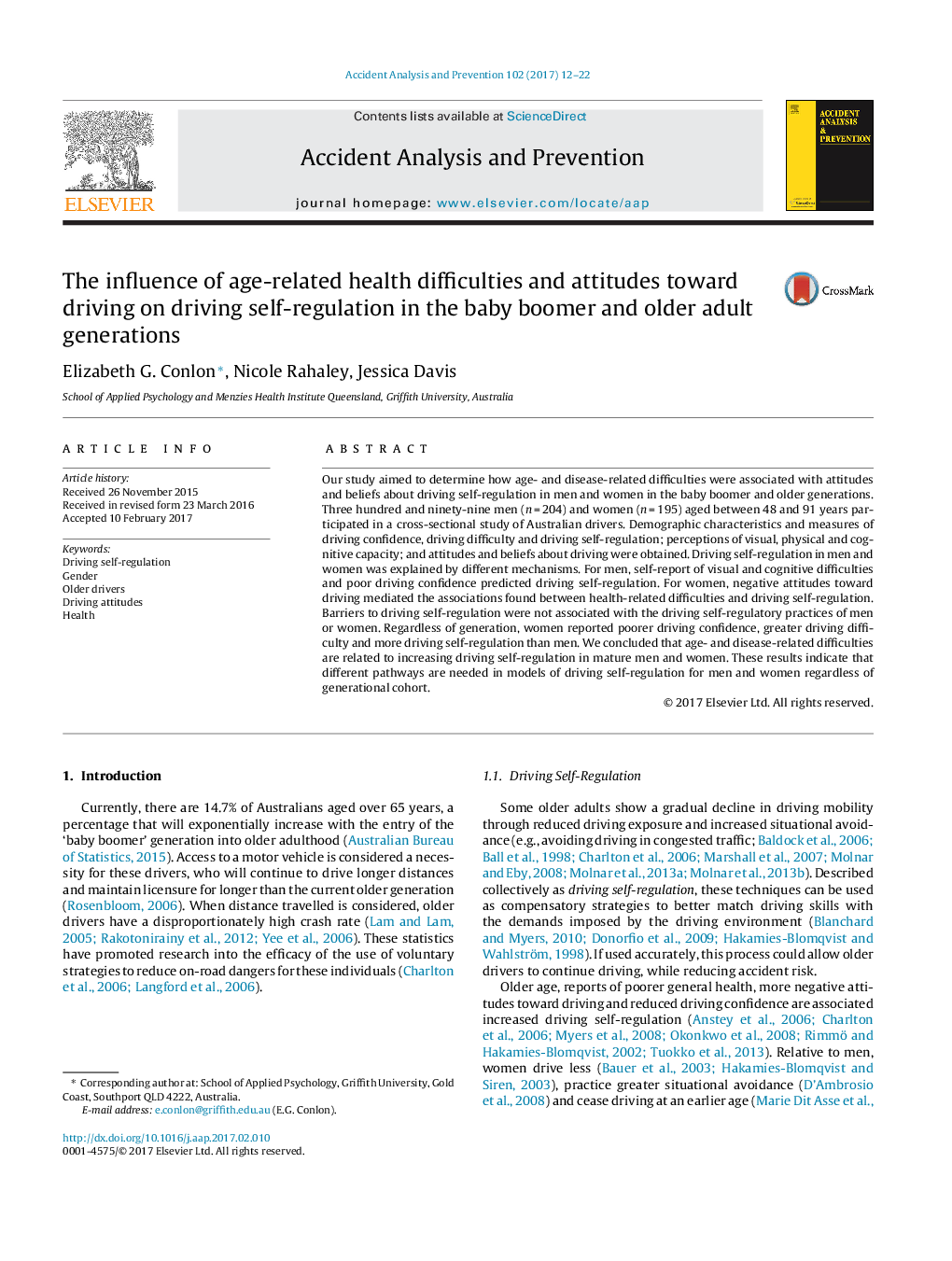| Article ID | Journal | Published Year | Pages | File Type |
|---|---|---|---|---|
| 4978587 | Accident Analysis & Prevention | 2017 | 11 Pages |
Abstract
Our study aimed to determine how age- and disease-related difficulties were associated with attitudes and beliefs about driving self-regulation in men and women in the baby boomer and older generations. Three hundred and ninety-nine men (n = 204) and women (n = 195) aged between 48 and 91 years participated in a cross-sectional study of Australian drivers. Demographic characteristics and measures of driving confidence, driving difficulty and driving self-regulation; perceptions of visual, physical and cognitive capacity; and attitudes and beliefs about driving were obtained. Driving self-regulation in men and women was explained by different mechanisms. For men, self-report of visual and cognitive difficulties and poor driving confidence predicted driving self-regulation. For women, negative attitudes toward driving mediated the associations found between health-related difficulties and driving self-regulation. Barriers to driving self-regulation were not associated with the driving self-regulatory practices of men or women. Regardless of generation, women reported poorer driving confidence, greater driving difficulty and more driving self-regulation than men. We concluded that age- and disease-related difficulties are related to increasing driving self-regulation in mature men and women. These results indicate that different pathways are needed in models of driving self-regulation for men and women regardless of generational cohort.
Related Topics
Physical Sciences and Engineering
Chemical Engineering
Chemical Health and Safety
Authors
Elizabeth G. Conlon, Nicole Rahaley, Jessica Davis,
